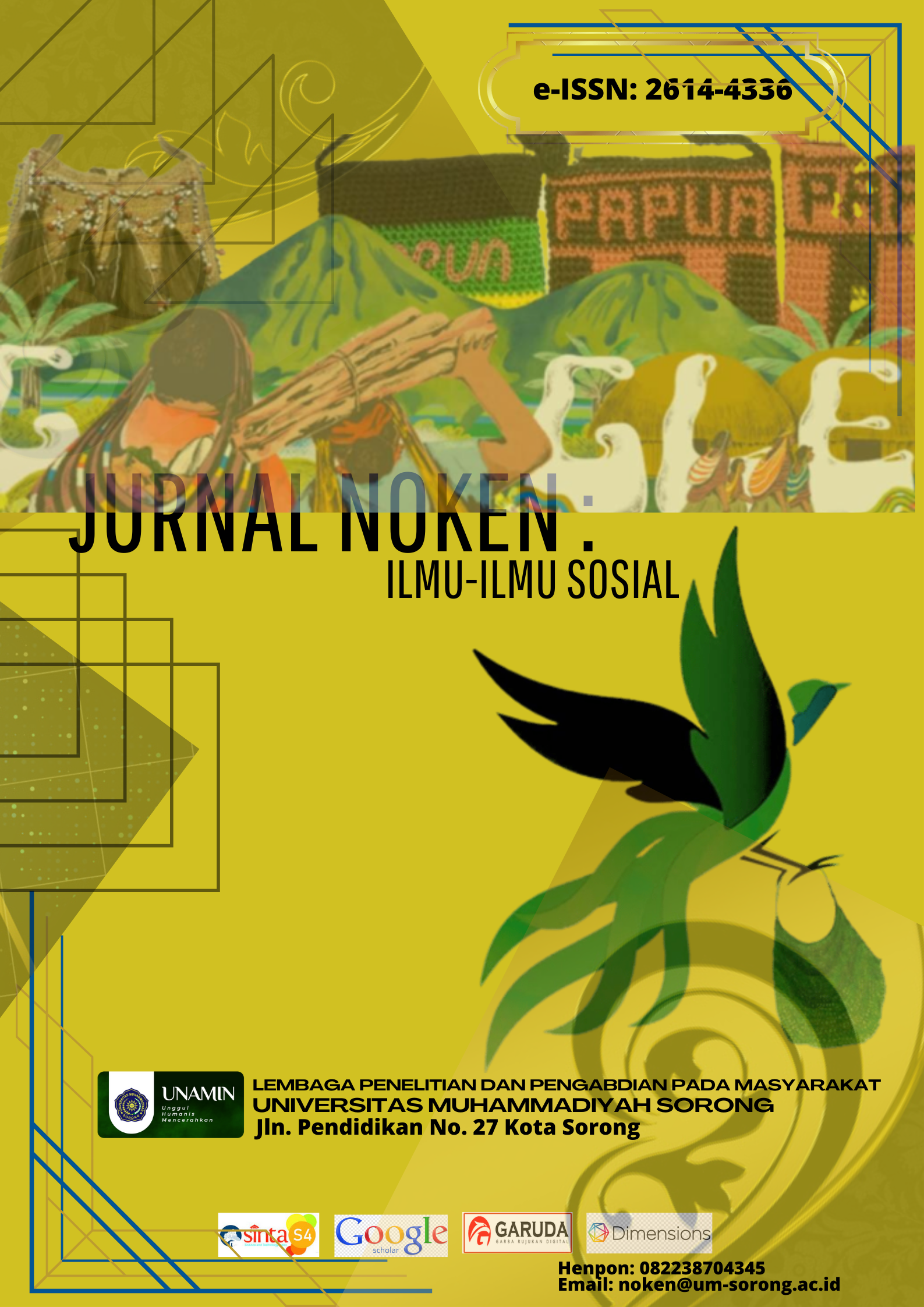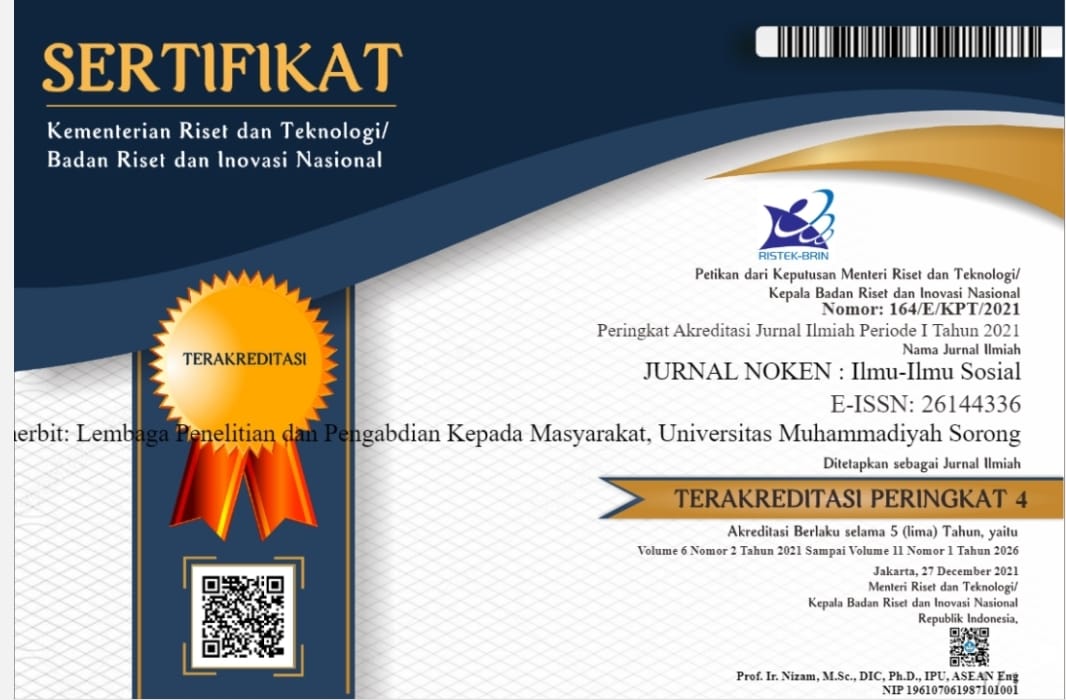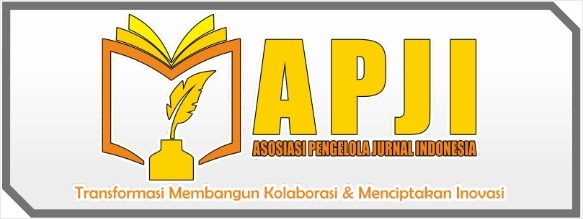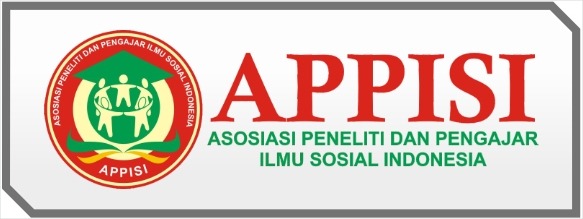Potensi Konflik Berpengaru Terhadap Peningkatan Ekonomi Masyarakat Kota Gorontalo
DOI:
https://doi.org/10.33506/jn.v6i2.1366Keywords:
Conflict, Economic, Tribe, Social.Abstract
The method used is a participatory multidimensional approach with the research location of Gorontalo City. This research uses literature study by searching through print media and internet links. The primary data in this study was through interviews with traditional and cultural leaders, religious leaders as well as secondary data from local government agencies and other related institutions (Polri, NGO, CSO, Media). Types of data and sources of conflict include three-year data (2010 – 2012). This research shows that in 2010 the type of conflict between community members and the government was very dominant with the percentage reaching 50%, the next is the potential for natural resource/economic conflict with a percentage of 26%, the potential for communal conflict at 18%, while for the potential for political conflict, Sara and relations industry, only 2% each. In 2011 the type of communal conflict reached 57%, then the potential for political conflict was 22%, the potential for conflict between residents and the apparatus was 10% and the rest the potential for Sara conflict and natural resource/economic conflict were 6% and 5%, respectively. The potential for conflict affects the potential for improving the community's economy and also has an impact on social conflict, so a regional autonomy policy is needed to prevent potential conflicts by optimizing economic achievements and their implementation.References
Abdullah, A. (2010). Tema dan Isu Penyelidikan Mengenai Gejala Sosial pada Dekad Pertama Abad 21 (Themes and Issues in Research on Social Problems in the First Decade of the 21st Century in Malaysia). Akademika, 78(1).
Abidin, I. M. R. Z. (2017). Tindakan Darurat Penyelamatan Dan Perlindungan Koban Dalam Penanganan Konflik Sosial Menurut Undang-Undang Nomor 7 Tahun 2012. Lex Crimen, 6(7).
Cahyono, A. E., & Putra, Y. B. T. (2017). Analisis Potensi Ekonomi Pengembangan Agrowisata Berbasis Kearifan Lokal Di Desa Wisata Sumber Mujur Kabupaten Lumajang. Eco-Socio: Jurnal ilmu dan Pendidikan Ekonomi, 1(1), 14-22.
Febriana, Y. E., & Pangestuti, E. (2018). Analisis dampak pengembangan kepariwisataan dalam menunjang keberlanjutan ekonomi dan sosial budaya lokal masyarakat (Studi pada Desa Wisata Gubugklakah, Kecamatan Poncokusumo, Kabupaten Malang). Jurnal Administrasi Bisnis, 61(4), 143-150.
Harmantyo, D. (2010). Pemekaran Daerah dan Konflik keruangan Kebijakan otonomi daerah dan Implementasinya di Indonesia. Makara Journal of Science.
Herdiansah, A. G. (2016). Peran Organisasi Masyarakat (Ormas) dan Lembaga Swadaya Masyarakat (LSM) Dalam Menopang Pembangunan Di Indonesia. Sosioglobal: Jurnal Pemikiran dan Penelitian Sosiologi, 1(1), 49-67.
Herdiansyah, H. (2018). Pengelolaan Konflik Sumber Daya Alam Terbarukan di Perbatasan dalam Pendekatan Ekologi Politik. Jurnal Hubungan Internasional, 7(2), 144-151.
Hidayat, K.(2019). Agama untuk Peradaban: Membumikan Etos Agama dalam Kehidupan. Pustaka Alvabet.
Indonesia, R.(2002). Undang-Undang Dasar Negara Republik Indonesia Tahun 1945. Sekretariat Jenderal MPR RI.
Kusuma, N. A. (2014). Peran Komunikasi Antar Budaya Masyarakat dalam Menyelesaikan Konflik di Perumahan Talang Sari Kota Samarinda. Jurnal Ilmu komunikasi, 2(4), 64-67.
Muhsin, A. (1957). Manajemen Pendidikan Pesantren (Implikasi Resolusi Konflik Dalam Studi Kasus Di Pondok Pesantren Al-Ichsan Mojokerto). British Journal of Sociology, 8(3), 204.
Muhtadi, A. S. (2019). Komunikasi Lintas Agama: Mencari Solusi Konflik Agama. In Conference Proceeding ICONIMAD (p. 275).
Mustamin, M. (2016). Studi Konflik Sosial di Desa Bugis dan Parangina Kecamatan Sape Kabupaten Bima Tahun 2014. Jurnal Ilmiah Mandala Education, 2(2), 185-205.
Nurchalis, A. (2018). Resolusi Konflik Batas Wilayah Kabupaten Gorontalo-Kabupaten Gorontalo Utara (Studi One Map Policy). Damai dan Resolusi Konflik, 3(3).
Nurdin, I. (2014). Budaya organisasi satuan polisi pamong praja (satpol pp) kota Bandung. Sosiohumaniora, 16(3), 228-233.
Pardiyanto, M. A. (2017). Konflik Sosial Dan Ekonomi Sebagai Dampak Undang–Undang Nomor 6 Tahun 2014 Tentang Desa. Jurnal Ius Constituendum, 2(2), 186-2014.
Raharjo, S. N. I. (2015). Peran identitas agama dalam konflik di Rakhine Myanmar tahun 2012–2013. Jurnal Kajian Wilayah, 6(1), 35-59.
Robby, U. B. I., & Akhiruddin, D. (2021). Strategi Kodim 1703/Manokwari Dalam Penanganan Konflik Sosial di Provinsi Papua Barat. JDKP Jurnal Desentralisasi dan Kebijakan Publik, 2(1), 149-158.
Rojali, A. (2020). Mengelolah Konflik Terhadap Lembaga. Jurnal Contemplate, 1(02).
Siradjuddin, S. (2015). Akar-akar konflik fundamental perspektif ekonomi politik. Jurnal Iqtisaduna, 1(2), 17-39.
Sjafari, A. (2017). Pemetaan Konflik Sosial di Kota Tangerang Provinsi Banten. Journal Of Government (Kajian Manajemen Pemerintahan dan Otonomi Daerah), 2(2), 135-157.
St Aisyah, B. M. (2014). Konflik sosial dalam hubungan antar umat beragama. Jurnal Dakwah Tabligh, 15(2), 189-208.
Subiyanto, A. (2020). Analisis Kebakaran Hutan Dan Lahan Dari Sisi Faktor Pemicu Dan Ekologi Politik. Jurnal Manajemen Bencana (JMB), 6(2).
Sutikno, S., Baihaqi, I., Yusuf, M., & Sari, N. I. (2018). Pemetaan Sosial dan Ekonomi Masyarakat Di Sekitar Kampus ITS Surabaya. IPTEK Journal of Proceedings Series, (2).
Wirawan, K., & Konflik, M. (2009). Teori Aplikasi dan Penelitian. Jakarta: Salemba Empat.
Yadiman, H., and Rycko Amelza Dahniel. 2013. “Konflik Sosial dan Anarkisme. “Andi Offset, Yogyakarta.
Zulkarnaen, R. M. (2016). Pengembangan Potensi Ekonomi Desa Melalui Badan Usaha Milik Desa (Bumdes) Pondok Salam Kabupaten Purwakarta. Dharmakarya, 5(1).










